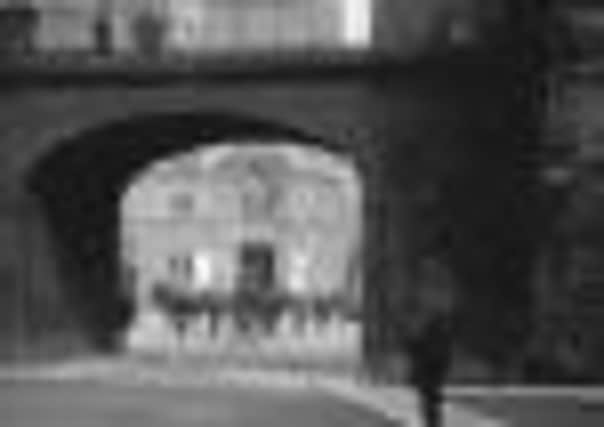Charitable hospital help and the introduction of electric lights


One such institution in Londonderry in the late 1800’s was the Foyle Hill Hospital which was a institution for the treatment of fever and the council records for 1897 states: “Since the last meeting there were under treatment in the hospital 18 cases of which 13 have been discharged and five now remaining: The amount paid in for food of patients was: £34.2.3: Amount repaid by patients: £12.16.0: Nurses and servants salaries: £37.12.1.”
Members of the hospital committee at the time were Alderman O’Kane and Councillors MacCullagh, McCaul, McLaughlin, Magee, Tillie and Hannigan. These were the men who handled the tenders for various services to be supplied to the hospital. They appointed Mr David Best to supply groceries, Messrs A Russell & Co for oatmeal and Mr John Concannon for beef and mutton.
Advertisement
Hide AdAdvertisement
Hide AdA strange entry, hinting at some form of intrigue at the Foyle Hill Hospital was also made in 1897.
It states: “Letters were read from Dr Todd and Mr Herbert Williams complaining of the treatment at the hospital and Miss Ferguson’s reply thereto and it was decided that the Executive Sanitary Officer write a reply to Dr Todd that it appeared in the absence of Miss Ferguson on 21st December was with the consent and permission of the Medical Attendant in charge at that time, but under new rules now in operation officers leaving duty must have the permission of the Committee and as regards the noises complained of on the night of 10th December it appeared this was occasioned by the lock of the nurses’ bedroom door being out of order which necessitated the door being forcibly opened.”
But, whatever went on there at the time, things moved on swiftly as the next entry says the Hospital Committee were directed to report on the provision of a “new ambulance van with pneumatic wheels for conveying patients to the hospital.”
Moving on from the hospital another brief entry reveals the very different world of 115 years ago-the entry simply states: “An order was issued to have notices served on all persons having manure on the plot at the foot of Bishop Street to have the same removed within fourteen days.”
Advertisement
Hide AdAdvertisement
Hide AdCommerce within the city also brought extra considerations for those concerned with public health and safety especially as the town continued to expand.
The Londonderry Corporation minutes reveal that there was a Water and Fire Brigade Committee and for the year of 1897, Councillor Ross Hastings JP was its chairman.
The committee approved of the extensions of water mainss in Elmwood Street, Marlborough Street and a ‘new street’ not as yet named off the Brandywell Road and the Committee approved of the ordering of 150 yards of three inch water pipes to complete the jobs. The Committee also recommended that a pipe be taken off the Strand Road to the foot of Boating Club Lane and that a hydrant be put on with the cost not exceeding £15.0.0.”
The Town Clerk also reported that he had received a letter from the Secretary of the Bridge Commissioners stating that they had no objections to the placement of a fire alarm box at the end of the bridge.
Advertisement
Hide AdAdvertisement
Hide AdThe switch to electric lighting across the city from gas lights was also well under way at this point.
An application from Rev WR Butler to have the lamp on East Wall lit in the winter months was accepted and accepted for discussion was the plea from the Lough Swilly Railway to have their gas lamps replaced by electric ones was referred to the city’s Electrical Engineer to gauge the cost of this.
The changing of lamps at Spencer Road and Brewery Lane were also approved of but the request of a Mr John Doherty of Abercorn Road to have a lamp placed outside his premises was rejected because it was said that the relocation of the light could not be made without causing severe disruption of quality lighting to other premises on the street.
But the request of a Miss Kelly to have an additional light placed outside the Ulster Hotel in Guildhall Street was approved of.
Advertisement
Hide AdAdvertisement
Hide AdWith regard to the City Cemetery the Council the Town Clerk was directed to write to Dublin, Belfast, Waterford and Limerick “for scales of changes for new ground and internment fees in their several cemeteries.
“The Committee recommend that the fees to be charged for the internment of the working class in the cemetery by 5 shillings and that the wages scale be increased to 12 shillings, orders to be signed as formerly.”
Coincidentally with this year’s Diamond Jubilee, 1897 was the Diamond Jubilee of Queen Victoria who came to the throne in 1837. An entry in the Corporation minutes said: “That the Draft Address of Congratulation to Her Majesty the Queen on the completion of Her Majesty’s Diamond Jubilee as submitted this day by the Town Clerk be approved of.
“That the Town Clerk communicate Her Majesty’s Secretary of State for the Home Department as to its reception forwarding copy for approval and that when a reply has been received from the Home Secretary, the Mayor summon a Committee to consist of the whole council to take steps for carrying out Her Majesty’s wishes.”